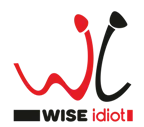How to align the different perspectives of your mind, emotions, body and soul to overcome life challenges, career confusion, and find success at work, and maybe even true fulfilment.
Introduction: Why You Still Feel Lost Despite Chasing Success
In a high-speed, high-pressure, instant-gratification, dopamine-fuelled world, most of us chase job titles, salaries and success. Success quotes, imagery, you-can-do-it boosters flood our social feeds — yet we still wake up feeling empty. Even with a promising career or a high-paying AI tools-enabled remote job, that nagging feeling won’t leave: Why don’t I feel fulfilled? Is something wrong with me? Is this reality or are we living in a matrix like that article said?
More often than not, the problem isn’t your life choices, job or career—it is the fog of chaos inside your head. Whether you are working in a stressful job, juggling more responsibilities after an overdue promotion, feeling stuck in a cycle of mind-numbing burnout, balancing work life and personal life in a WFH job, or simply battling a long funk or even worse, depression, while trying to stay cheerful, grateful, productive, all the goody-goody things you are supposed to feel, the core issue may lie in something entirely different — are you able to feel and manage yourself anymore?
You may be in a state of eternal conflict that is raging in yourself.
But. But. But. What if – what if the reason for this inner conflict is that you’re trying to manage four different versions of yourself — without realising it?
Maybe by learning to recognise and align the four parts of you: (1) your mind, (2) your emotions, (3) your body, and (4) your soul, you can yet become your own best self.
This self-recognition and regulation may just be the foundation of lasting success — not just in your job or work, but in life.
Meet the Four Voices in Your Head
Rather than thinking of yourself as a single, unified voice, imagine your inner world as a roundtable of four players who are only interested in what they have to say. Each brings something valuable to your job and life — but they usually clash, trying to outshout each other. Think of them as four participants in a news debate or better yet, a political news debate, and you will get the picture.
1. The Mind (Intellect)
This is the career-driven, logical planner. It obsesses over to-do lists, productivity tools, strategy, and success quotes like “Work hard in silence, let success make the noise” makes it feel empowered and alive. It thrives in structured environments and loves clarity and control.
Seen a tear-inducing scene in a movie wondering if the hamming could have been a bit less — that is your mind talking.
Strengths: Rational thinking, decision-making, planning
Pitfalls: Overthinking, anxiety, perfectionism
2. The Emotions (Heart)
Your emotional self is your inner child. It feels deeply — joy, pain, insecurity, connection. It can feel like a liability when you’re trying to “be professional,” but ignoring this voice often leads to depression, emotional burnout, or creative block.
If we take the same movie-viewing example, if you find your eyes welling up when the wayward son comes back home or on hearing songs like “Chitthi Ayi Hain Ayi Hain…,” your emotions are having the run of the town.
Strengths: Passion, empathy, vulnerability
Pitfalls: Fear, impulsivity, emotional overwhelming
3. The Physical Self (Body)
This is your vehicle. It tells you when you’re tired, energised, depleted, or overstimulated. If you’re working long hours, whether in an office or a work-from-home job, the body suffers most when ignored.
Ever heard of something called Hangry? It is when your body is hungry and angry at not having been fed. Ever woke up with back-pain? That is your body telling you that it needs you to start exercising.
Strengths: Endurance, instinct, physical signals
Pitfalls: Fatigue, illness, stress-related breakdowns
4. The Soul (Spirit)
The soul is your compass of morality and empathy. It’s the quiet inner guide that asks, ‘Is this job aligned with who I really am?’ It doesn’t care about likes, money, or hustle culture. It is the source of long-term purpose and deeper happiness.
It will make you rethink life, look wistfully at people who are enjoying more free time, find solace in a calm voice — even if it is of a charlatan.
Strengths: Clarity, purpose, moral direction
Pitfalls: Hard to hear, often drowned out by the other voices
First Things First: Not Science—But a Framework for Self-Regulation
Let us be clear: these four voices are not separate neurological systems or scientifically proven anatomical entities. The human self is much more complex and integrated than that.
These voices are practical metaphors, designed to help you regulate your life and your mental health. Think of them as parts of your consciousness, giving you access to different ideas, needs, desires, and information.
This model doesn’t replace therapy or scientific frameworks — it complements them by giving you a practical toolkit to handle the pressures of work, career decisions, job burnout, or even the quiet struggles of feeling unloved.
Here are two steps of this practical toolkit to help you get more control over yourself and your life – personal or professional.
The Two Steps
Morning Check-In: Align Before You Begin Your Work Day
Before you dive into your daily schedule, get to work on your job or even open your laptop for your WFH remote shift, look at each of the four voices:
- Mind (Intellect): What are today’s priorities? What requires focused attention?
- Heart (Emotions): How do I feel this morning? Am I excited, anxious, or disconnected?
- Body (Physical Self): Did I sleep enough? Am I hydrated? Do I need movement?
- Soul (Spirit): Why am I doing this? What part of this work gives my life meaning?
Note down the most important voices in order of priority and assign time through the day for each concern.
Even if you’re in a fast-paced job or juggling multiple gigs, five minutes of reflection and assigning time to look at the concerns of each voice can be empowering enough that the fog of chaos fades away.
End-of-Day Check-In: Closing the Loop
At the end of your workday — especially if you’re working from home and the line between work and rest is blurry — take a moment to check in with all four voices. This is a good time to give some moments to the morning concerns of each voice that you have not been able to address so far.
- Mind: What did I accomplish today? What can I release? What is left to be done?
- Heart: What feelings came up during the day? Did I acknowledge them? What is left to be done?
- Body: Am I physically tense or relaxed? Do I need recovery? What is left to be done?
- Soul: Was today aligned with my long-term path, or did I drift? What is left to be done?
This practice helps you prevent emotional spillover, manage life and work stress, and ease into rest without guilt or unresolved tension.
The next day, include the answers to the question you asked, “What is left to be done?” in the morning routine.
Conflict is Natural—But So is Alignment of Needs of Each Voice
You may often hear these voices in conflict:
- The mind wants to finish one more task.
- The emotions feel overwhelmed and want to cry or hide.
- The body is screaming for rest.
- The soul wonders if this is all just a treadmill.
Don’t suppress any of them. Instead, act like a team leader mediating a heated meeting. Let each voice speak. Find compromise:
- Can you stop working on time, even if everything isn’t perfect?
- Can you take a walk instead of forcing more productivity?
- Can you write one line of reflection before sleep?
These tiny shifts create a huge change in your relationship with your family, job, your goals and ambition, and your overall well-being.
Here is how you can easily go about these activities:
- Be Aware of Them: Recognising which voice is speaking at any moment
- Acknowledge or Validate Them: Acknowledging each voice’s needs and concerns
- Integrate Them All: Finding compromises where all voices feel heard and valued
Life and Career Success Starts with Inner Leadership
Many people think success is about hitting goals. But real success is about leading yourself wisely, even when life throws chaos your way.
There are some things that you ought to keep in mind.
- Work-from-home jobs may give you freedom, but they also need more self-regulation than what an office job would have required. You will need structure
- Depression can look like procrastination or laziness when viewed through the lens of hustle culture — but it’s often a cry from the emotional or physical voice asking for care. Professional help is important. We are facing too many changes that the human brain can accommodate. It is no wonder mental health issues are on the rise. Seek help. It will save you from yourself
- Job burnout isn’t a sign of weakness. It’s a sign that your inner voices have been ignored for too long. Moreover, most companies do not care for their employees enough. The widening gap between the rich and the poor is a clear indicator that something is wrong. You may not be able to fix the system but if you choose mental peace and others like you do so too, companies will change. Losing trained employees is a costly proposition and does not do the topline or bottomline any good
Takeaway: Give Your Voices Some Time to Speak
Success isn’t just about grit. Hustle culture is a certain way to stress and mental health issues.
Life is happier if you listen and understand — at first to yourself. When your mind, emotions, body, and soul are aligned, you no longer chase someone else’s idea of success. You build your own.
So, whether you are a student wondering if the stress of exams is worth it (ans: it is not), starting out or over in a new career, climbing the success ladder in a traditional job, or exploring work-from-home opportunities that better suit your lifestyle, the message is the same:
Listen. Understand. Align Needs.
Bonus: A Success Quote for Each Voice (if you are into this)
- Mind (Intellect): “Success is the sum of small efforts repeated day in and day out.” —Robert Collier
- Emotions (Heart): “Success is liking yourself, liking what you do, and liking how you do it.” —Maya Angelou
- Body (Physical Self): “Take care of your body. It’s the only place you have to live.” —Jim Rohn
- Soul (Spirit): “Don’t aim for success if you want it; just do what you love and believe in.” —David Frost
And that is it. Have a perfectly aligned happy day.

